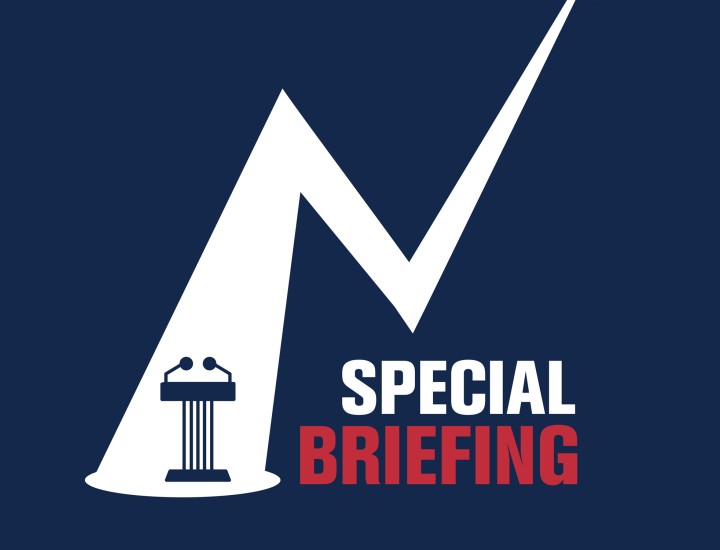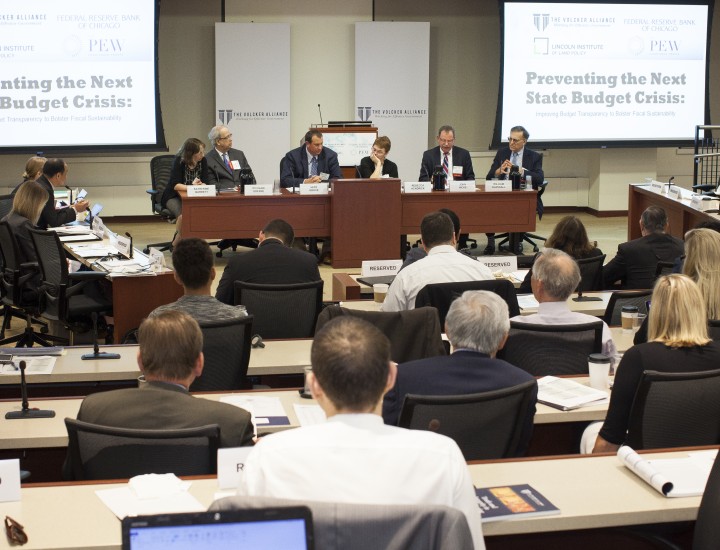New York, Other Big US Cities May Be Able to Create New 'Boom Loop' Economies Even as Work From Home Becomes Entrenched, New Paper Shows
New Volcker Alliance Issue Paper Examines How Continuing Trend of Working From Home Is Reshaping the Economic Landscape of America’s Major Cities
Opportunity for Economic Revival and Boom in Cities Seen, Given the Right Policies and Incentives
New York, NY – The Volcker Alliance today released a new report on the potential economic impact and outcomes for America’s biggest cities if the work from home (WFH) trend continues. The paper, Doom Loop or Boom Loop: Work from Home and the Challenges Facing America’s Big Cities, examines possible paths ahead for cities including New York, Chicago, Miami, Philadelphia, and San Francisco and recommends policies to navigate the challenges and opportunities associated with a significantly remote workforce.
“Before the pandemic, we didn’t have a proper idea of how working from home would affect the economies of our biggest cities,” said David Stanek, one of the paper’s authors and vice president at Econsult Solutions Inc. “With four years of hindsight, we’re beginning to see the possibilities of cities’ bouncing back should they adapt effectively, and we can anticipate a vibrant resurgence in economic activity and urban prosperity.”
Since the COVID-19 pandemic, the percentage of WFH employees jumped from less than 5% to 61.5%. The number has slightly decreased recently, but nearly 41% of American workers continue to work from home for either part or all of the work week. The paper explores the long-term fiscal implications of Americans continuing to work from home. It offers three possible scenarios in which cities reach a stable state. They include:
- Doom Loop Prevails: Cities’ economic competitiveness is permanently lowered as offices remain vacant and central business districts are depleted resulting in a decline in billions of dollars in real estate and transportation and reductions in government services;
- Recovery: Cities adjust to WFH as the new normal, the in-person workforce returns to pre-pandemic levels while the city’s population grows and work productivity remains the same;
- Virtuous Boom Loop Arises: Cities prosper over the long run as economic activity increases because firms and businesses optimize their in-person and remote workforce, thus attracting more workers who benefit from in-person work, increasing overall worker productivity, resulting in revenues from income, sales, and property taxes rising.
The paper also found that New York and the other cities studied are on the cusp of revival and well positioned for a Boom Loop scenario if they follow policies that:
- Attract industries and sectors that generate innovation as they traditionally benefit from in-person interaction;
- Ensure that the municipal tax system encourages in-person work through fiscal incentives such as occupancy taxes or tax breaks;
- Enhance the quality of public transit with a focus on off-peak commuters and implementing congestion pricing measures to encourage greater use and higher transit revenues.
In particular, the projections in the Boom Loop scenario show how a city can promote economic diversification, stimulate innovation, and create a business-friendly and livable urban environment if it leverages the WFH trend as an opportunity to aggregate high productivity workers.
“Many cities are weathering the increase of their people continuing to work from home better than expected,” said William Glasgall, Senior Director at Volcker Alliance. “While the initial work from home surge presented challenges, as we settle into the new workplace standard, cities may be poised for a revival if they can take advantage of this moment to turn around their economic fortunes.”
The report was authored by Susan Wachter, Co-Director, Penn Institute for Urban Research; David Stanek, PhD, Vice President, Econsult Solutions Inc.; and Hyojin Lee, Analyst, Econsult Solutions Inc.
The full study is available here.
###
Media Inquiries, please contact: Ariel Sussman | [email protected] | 978-807-7950


